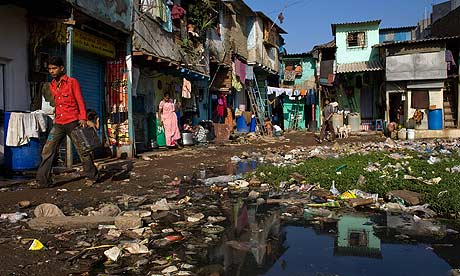Wednesday, February 25, 2009
Monday, February 23, 2009
Ulrich Franzen's 1969 film (From Urban Omnibus)
http://urbanomnibus.net/2009/02/ulrich-franzens-street/
Saturday, February 21, 2009
After the Fall
No Downtime (or downturn) for Design
The current economic crisis, combined with environmental issues poses threats as well as challenges for designers. . Tied to the question is is the issue of consumption. Faced with new realities and knowledge of the consequences of ignorance call for us to redefine or reinstate the role of design. Design as a response to necessity vs luxury, or both, prompts us to look at use-patterns in a much wider context than what the 20th century consumerism did. There is a paradigm shift..... We as a consumer society have understood how to share our resources and exploit them selfishly. Time has come to also share our risks; design must play a significant and responsible role for the collective good.
On the other hand, recession should not mean regression.... progressive ideas come from the need to be frugal and inventive at the same time; to do more with less, is the challenge 21st century designers must embrace.
-Viren
I.D. - After the Fall
The current economic crisis, combined with environmental issues poses threats as well as challenges for designers. . Tied to the question is is the issue of consumption. Faced with new realities and knowledge of the consequences of ignorance call for us to redefine or reinstate the role of design. Design as a response to necessity vs luxury, or both, prompts us to look at use-patterns in a much wider context than what the 20th century consumerism did. There is a paradigm shift..... We as a consumer society have understood how to share our resources and exploit them selfishly. Time has come to also share our risks; design must play a significant and responsible role for the collective good.
On the other hand, recession should not mean regression.... progressive ideas come from the need to be frugal and inventive at the same time; to do more with less, is the challenge 21st century designers must embrace.
-Viren
I.D. - After the Fall
Friday, February 20, 2009
Wednesday, February 18, 2009
Sunday, February 15, 2009
Thursday, February 12, 2009
Energy Information
Data Sources
Our estimate of the impact of real-time energy feedback on carbon emissions is based on the following sources:
- Home electricity use: The U. S. Energy Information Administration estimated in 2001 that there were 107 million households in the United States using a total of 1140 terawatt-hours (TWh) per year. That gives an average of 10.6 megawatt-hours (MWh) per year per household.
- Carbon emissions from residential electricity: According to the U. S. Environmental Protection Agency, the National Average Emissions Rate for 2005 was 712 g CO2 per kilowatt-hour (kWh).
- Electricity saved with real-time feedback: There have been several studies of feedback's effects on energy use. Sarah Darby's review of the literature, The Effectiveness of Feedback on Energy Consumption (pdf) , estimates savings between 5 and 15% from direct feedback.
- Carbon emissions from cars: Again according to the EPA, a typical car is driven 12,000 miles per year, the average fuel economy of a passenger car is 23.9 miles per gallon, and a gallon of gasoline produces 8.8 kg of CO2.
Based on these figures, we get an average of 7.5 tonnes of CO2 emitted per year per household, and 4.5 tonnes of CO2 emitted per year per conventional car. So, 10% energy savings for 6 households would reduce carbon emissions by about the same amount as taking one conventional car off the road.
Wednesday, February 11, 2009
Slumdog Prince....
For once, I seem to agree with the prince. Cities are our hope - for better or worse - from the environmental sustainability point of view and to further our goals to nurture, maintain and sustain local economies and their interdependence with the formal sector. To minimize the impact of urbanization, we must focus on cities to maximize our use of urban land, efficient use of existing or new resources, reduce proliferation and land-banking - to protect what otherwise would be engulfed by the cities of dispersal and urban greed.
-Viren

-Viren

Monday, February 9, 2009
Jeremy Rifkin Lecture
Wednesday, February 4, 2009
Tuesday, February 3, 2009
Sunday, February 1, 2009
Removing Roads and Traffic Lights Speeds Urban Travel
Removing Roads and Traffic Lights Speeds Urban Travel: Scientific American: "Braess’s paradox" (See Footnote 1)
1. Braess's Paradox
1. Braess's Paradox
Subscribe to:
Comments (Atom)

